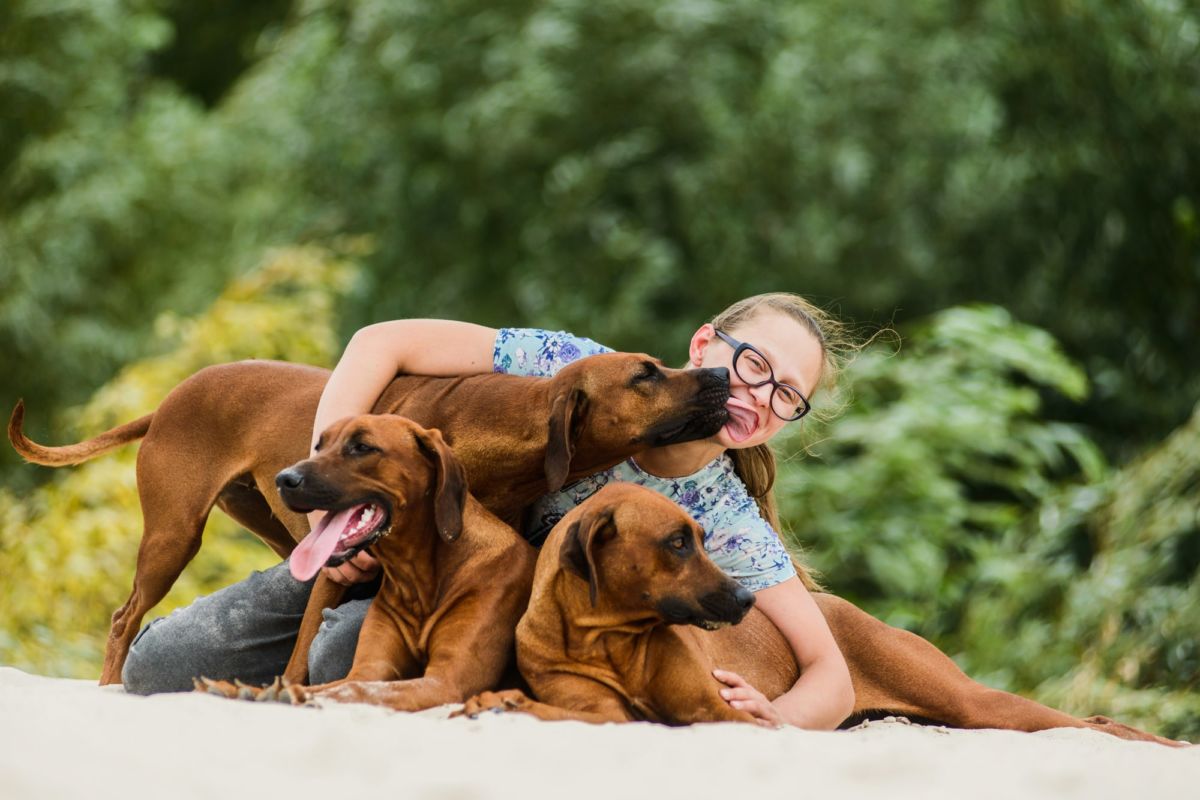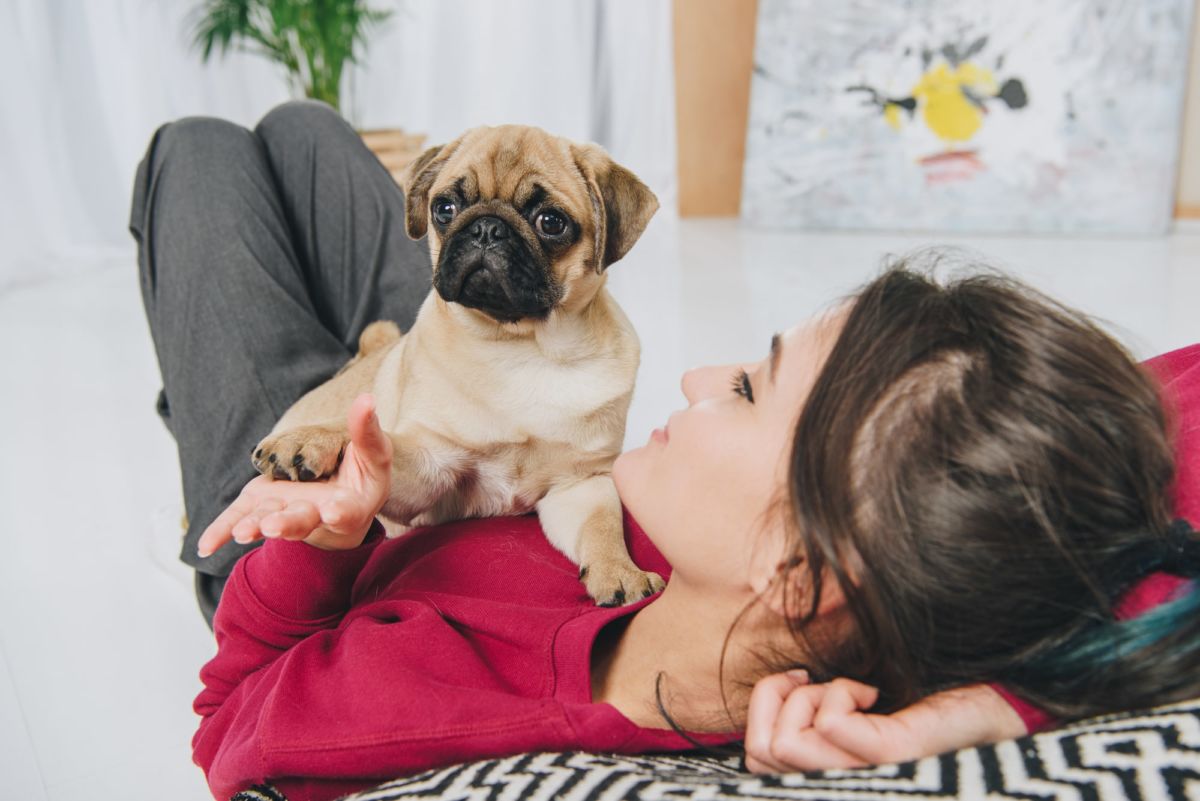Visiting a breeder to pick out your newest furry family member can be an exciting and overwhelming experience. Before you’re set up with the right puppy, you’ll likely have a lot of questions to ask a breeder.
Interacting with your dog breeder is a two-way street, however, and information from you is helpful in making sure the puppy you’re interested in is the right dog for you.
Breeders might want to know some basic information on you as a puppy buyer to make sure you’re getting the right pup. Their questions can cover a wide swath of your current circumstances, from your housing situation to previous animals and your current work schedule.

What Is Your Pet-Owning Background?
Breeders want to know your familiarity with the specific breed you’re interested in, especially if there are unique characteristics to this breed’s temperament and care that make it different from other dogs.
They might also want to know what type of animals you’ve owned in the past and how long it’s been since your last pets, if applicable. Caring for a horse or a turtle is very different from raising puppies, so breeders will be especially interested in your experience with other dogs.
What Is Your Home Like?
Breeders want to know what type of forever home their puppy will end up in. This encompasses more than just the type of home you have — apartment, condo or single-family home — and includes the physical structures and other animals within your home and outside it.
Are Dogs Allowed By Your Landlord?
Renters may have to consult with their landlord before they can bring new pets into their home or apartment, so breeders may ask potential buyers about the requirements at their residence at the beginning of the process. Some breeders might ask for your landlord’s contact information to confirm the dog you’re interested in is permitted by your agreement.
Do You Have A Fenced-In Yard?
As puppies grow, they need plenty of space to roam and play. This often means breeders will ask if you have a fenced yard to suit the explorations of a growing dog. A particular breed you’re interested in could be notorious for its ability to escape short fences or small spaces, so even the height of your fence and its coverage around your yard could be crucial.
Are There Other Pets in the Home?
Breeders also want to know if you have other animals in the home as this could affect how easily your new puppy adjusts. Some puppy buyers are welcoming a new dog into a home while assuming a current dog — or dogs — will immediately bond with the newcomer.
The age, breed and temperament of your current dog can be of interest to a breeder who knows the dynamic between the two dogs could determine whether a puppy is a right fit for you.
If you have other critters in the home besides dogs, whether a cat or a gerbil, it can be helpful for breeders to know about these animals too.
Do You Have Small Children?
Children and dogs can both be rowdy and playful, so a breeder will likely explain to parents how to train their children to interact with the dog in a way that’s respectful of its boundaries, and vice versa.
Are you prepared for various expenses of owning a pup?
For example, potential owners need to think about veterinary care and regular health maintenance. Veterinary costs, in particular, can climb if your puppy runs into any health problems or gets into any accidents, so breeders want to help you prepare for these costs before placing a dog in your care.
Different breeds will have different needs. With a breed like a labradoodle, grooming needs can be especially important to remember, as good grooming will keep your curly-haired dog happy and comfortable.
Other costs that new owners will need to factor into their budget include obedience training, buying quality dog food and general grooming and health maintenance. If you plan to crate your puppy at times, even after training, you’ll want to make that space as comfortable and well-suited to your dog as possible.

How Many Hours a Day Can You Devote to Your Pup?
Puppies require hours of training and care, and some puppy owners aren’t prepared for the time necessary. Some adventurous breeds will need more exercise than others, but they’ll all need quality time with you to be the best puppy they can be. How much of that quality time they get could depend on your schedule.
Who Will Be Home With the Dog?
If you spend a lot of time outside your home, having another family member around to ensure your puppy is properly house-trained and socialized is essential. Breeders might ask about other family members who might be around the dog.
Breeders want the dog they’re placing in your care to be friendly with humans and other animals, so the caregiver might want to make time to visit dog parks and give your new pet the time and space to meet people and other dogs after it’s safe for the puppy to do so.
Are You Prepared to Meet the Needs of a New Dog?
There’s no question that bringing a dog into your life is rewarding and fun, but there are also responsibilities and challenges involved, especially with puppies.
Being prepared to speak with a breeder means doing your homework, but you’ll want to be ready to provide helpful information to the breeder, too. Breeders are glad to help you understand the responsibilities of being a pet parent so you can have many happy years to come.
